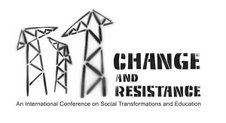Margaret Percy
Queen Mary University of London
In an article on the Bologna Process published by the Higher Education Academy, Lomine states interestingly and unequivocally,
“It was clear from the outset that the British system would have little to do to adapt and comply with the Bologna principles” One could add that accommodating to the norms and vagaries of the English language was not one of the things they would have to do, nor would any change in the English academic style required in articles and papers for international publishing or presentation at a conference such as this.
“In Western culture the chief alternative to objectivism has traditionally been taken to be subjectivism…..thus according to the dichotomy that our culture would foist upon us, we would be left with only a radical subjectivism”, lament Lackoff and Johnson (2003), concerned to promote more peaceable ways of communication.
“When one puts objectivity in parenthesis, all views, all verses in the multiverse are equally valid”, proposes Humberto Maturana (1985), refusing to participate in the dichotomizing activity of western academia.
The paper will discuss the changes implicit in the shift from various languages, multiverses, into the accepted language and format of English which Edward De Bono indicates as being good for description but not good for perception. The format imposed by English language academia requires changing mind sets, changing the thinking and perceiving of those whose languages may give more room to perception not to mention the logical-positivist requirement of writing from the traditional objectivist stance which may no longer be ecologically sound.

1 comment:
BOLOGA MUST BE CAREFUL ABOUT THE LANGUAGE ISSUES.
Many beautiful languages are vanishing because of the dominant English.
I will like to change languange but not my thoughts. To be able to learn and speak a new language is is always a credit or to say, fantastic. But the complications are huge. For example, using the new language effectively can make you loose your own thoughts. Meaning, how you would have express your ideas authentically in your mother tongue.
This is my personal experience as an African being forced to have english as official language at school, and making sure I follow all its rules and communicate effectively in English. The fact that I do not have enough espressions and vocabs in English to express my profound thoughts it sometimes makes my thought unreal.
Of course, there is both a positive side and a negative side in everything new. But I have realized that Eglish has become too dominant over other languages and as such many beautiful and authentic languages are dieing off. The new generation also think English is more popular. Right, English is popular world wide and it is good to be able to communicate in English. But, no way to give other languages upp!!!
For instance, most young people in Africa today prefer to critical think, speak and write English correctly than their own mother tongues.
Not only is this dominant language invading other big languages but also it is invading their cultures as well.
My question is, how will this make history real for many new generation to come? Let us all consider the future consequences.
Cathysjogreen@gmail.com
Post a Comment